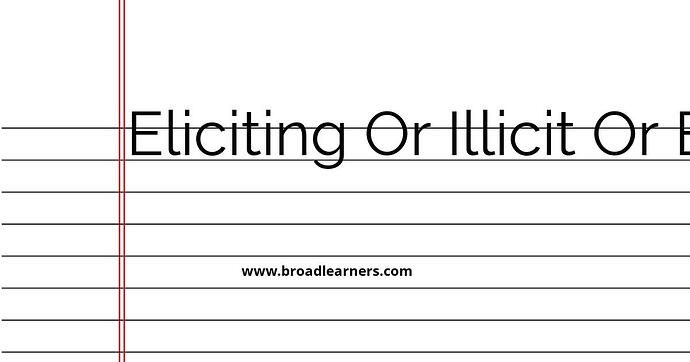'Eliciting', 'illicit', and 'eliciting' are commonly confused words in English grammar. Understanding the difference between these words is important to use them correctly in written and spoken English.
'Eliciting' is a verb that means to draw out or evoke a response, information, or reaction from someone. It is often used in the context of gathering information or getting a response from someone.
'Illicit' is an adjective that means something is forbidden, illegal, or not permitted by law. It refers to actions, behaviors, or substances that are prohibited or considered unlawful.
'Eliciting' is the present participle form of the verb 'elicit' and is used when referring to an ongoing action of drawing out or evoking a response.
Let's take a closer look at the meanings and usage of 'eliciting', 'illicit', and 'eliciting'.
| 'Eliciting' | 'Illicit' | 'Eliciting' |
|---|---|---|
| The word 'eliciting' is a verb that means to draw out or evoke a response, information, or reaction. | The word 'illicit' is an adjective that means forbidden, illegal, or not permitted by law. | The word 'eliciting' is the present participle form of the verb 'elicit'. |
|
|
|
To remember the difference between 'eliciting', 'illicit', and 'eliciting', it can be helpful to focus on their meanings and usage:
- 'Eliciting' is a verb that means to draw out or evoke a response.
- 'Illicit' is an adjective that means forbidden or illegal.
- 'Eliciting' is the present participle form of the verb 'elicit'.
Here are some examples of correct usage:
- The teacher was successful in eliciting answers from the students.
- He was caught with illicit substances in his possession.
- The detective is currently eliciting information from the witness.
Remembering the correct usage of 'eliciting', 'illicit', and 'eliciting' will improve your grammar and communication skills.
